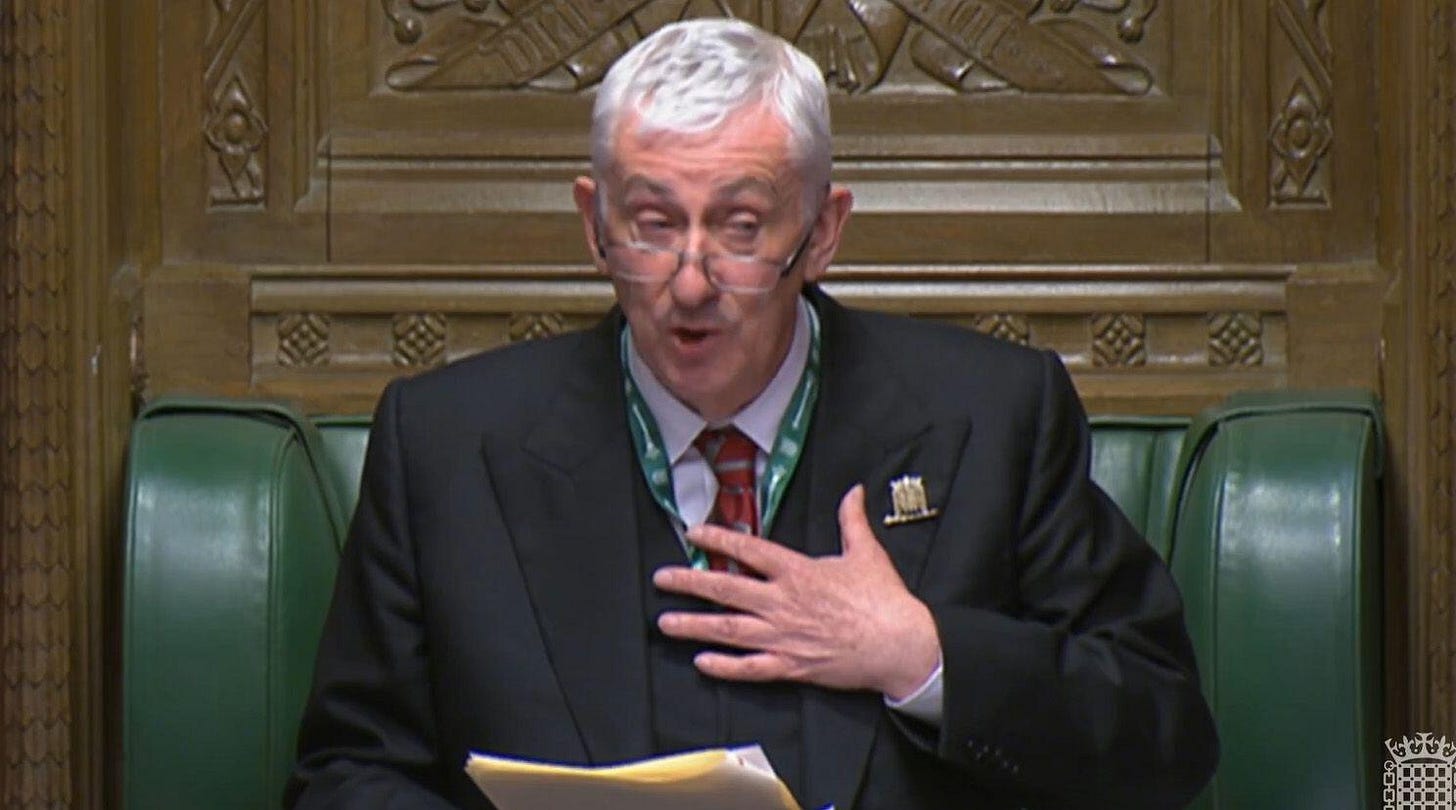Brits Are Losing Sympathy With Israel and its ‘Disproportionate’ Actions in Gaza
New polling commissioned by the Byline Supplement suggests there has been a significant shift in public attitudes towards events in the Middle East

In this week’s Bienkov Briefing:
Public Support for Israel among Brits is Declining
Approval of the UK’s political response to the crisis is also going down
Voters pick their favourites to succeed Rishi Sunak and Keir Starmer
How would Brits vote in the upcoming US election?
There has been a significant decline in British public sympathy towards Israel over recent months, with almost half of those voters surveyed this week now saying that the Israeli response to the October 7th attack by Hamas has been “disproportionate”, new polling commissioned by the Byline Supplement suggests.
The poll, conducted this week by pollsters We Think suggests that British voters are now around twice as likely to say they feel more sympathy towards Palestine (30%) than they are towards Israel (14%).
This is a significant shift from when we first asked this question at the end of October last year. Back then, those surveyed said they were slightly more likely to say they felt more sympathy towards Israel than Palestine, by 20% to 18%.
An bigger shift was found when those surveyed were asked whether they felt Israel’s response to the October 7th attack had been “proportionate”.
Back in October those surveyed were fairly evenly split, with 28% saying they believed the response had been proportionate, compared to 33% who disagreed.
However, those surveyed this week were much clearer about their views on Israel’s response, with 46% saying it had been disproportionate, compared to just 17% who said it had been proportionate
Growing Dissatisfaction with UK Political Response
There were chaotic scenes inside the House of Commons the week during a debate on events in Gaza. There were walkouts and calls for the Speaker Lindsay Hoyle to resign after he overruled parliamentary convention in order to allow a vote on a Labour motion about the conflict. The decision, which prevented a major rebellion on Keir Starmer’s backbenches over the party’s position on the conflict, led to the substance of the debate being overtaken in favour of a week long political debate about parliamentary process.
Deep political divisions over this issue appear to have gone down badly with voters over recent months, however.
Asked whether they approved of the UK Government’s response to the conflict, 28% said they disapproved, compared to just 21% who approved. This is a reversal of the response to the same question back in October, when 32% said they approved, compared to 23% who said they disapproved.
A similar shift appears to have occurred among the public towards Labour’s response to the conflict, with 28% of those surveyed this week saying they disapprove of the party’s response to the crisis, compared to just 16% who approve. This is also a reversal of the situation in October when voters were slightly more likely to say they approved of Labour’s response than disapproved of it.
However, in both cases most voters do not appear to have a strong opinion on it either way, with a majority neither approving or disapproving of either the Government, or Labour’s response to the conflict.
Who Would Voters Like to Replace Sunak and Starmer?
With attention already turning to what could happen after a likely Labour victory at the next general election, we asked pollsters We Think to survey who voters believe should replace Rishi Sunak as Conservative party leader.
The survey’s findings suggest that there is as yet no standout figure that most voters could get behind.
However, former leader Boris Johnson, who is no longer an MP, remains the potential replacement with the single biggest public support according to the survey.
Meanwhile Kemi Badeoch, who has been widely tipped for the top job in Westminster in recent months, was picked by just four per cent of those surveyed.
Who would be the best person to lead the Conservative Party after Rishi Sunak?
Boris Johnson: 18%
David Cameron: 17%
Penny Mordaunt: 14%
Nigel Farage: 13%
Rory Stewart: 5%
James Cleverly: 5%
Suella Braverman: 5%
Kemi Badenoch: 4%
Priti Patel: 3%
We Think Poll for Byline Supplement, February 2024.
While a Labour victory in the general election would leave little prospects of a contest for the leadership, we thought it would be interesting to find whether there were any standout contenders for a possible replacement for Starmer.
As with the Conservatives, those surveyed were unable to coalesce around a single stand out contender.
However, former party leader Jeremy Corbyn, who has been stripped of the Labour whip by Keir Starmer, came out on top, with current Deputy leader Angela Rayner a close second. The Shadow Health Secretary Wes Streeting was the least picked alternative of those offered in the survey.
Who would be the best person to lead the Labour Party after Keir Starmer?
Jeremy Corbyn: 14%
Angela Rayner: 13%
Ed Miliband: 10%
David Miliband: 9%
Sadiq Khan: 8%
Rachel Reeves: 8%
Yvette Cooper: 6%
Jess Philips: 6%
David Lammy: 5%
Lisa Nandy: 4%
Wes Streeting: 4%
We Think Poll for Byline Supplement, February 2024
A Third of Brits Would Vote Trump
Boris Johnson this week caused controversy after again endorsing Donald Trump in the upcoming US Presidential election, telling The Sun Newspaper that the world was more “stable” under the former President.
However, Johnson’s view remains a minority one among the British public, according to our survey.
Asked how they would vote for, if they were given a chance to, in the upcoming US Presidential election, 64% of those surveyed would pick the current president Joe Biden over Trump.
This majority for Biden was found in similar numbers among supporters of all the main British political parties.
However, a significant minority of 36% of all those surveyed said they would pick Donald Trump instead, meaning he does still retain significant support among some Brits.




